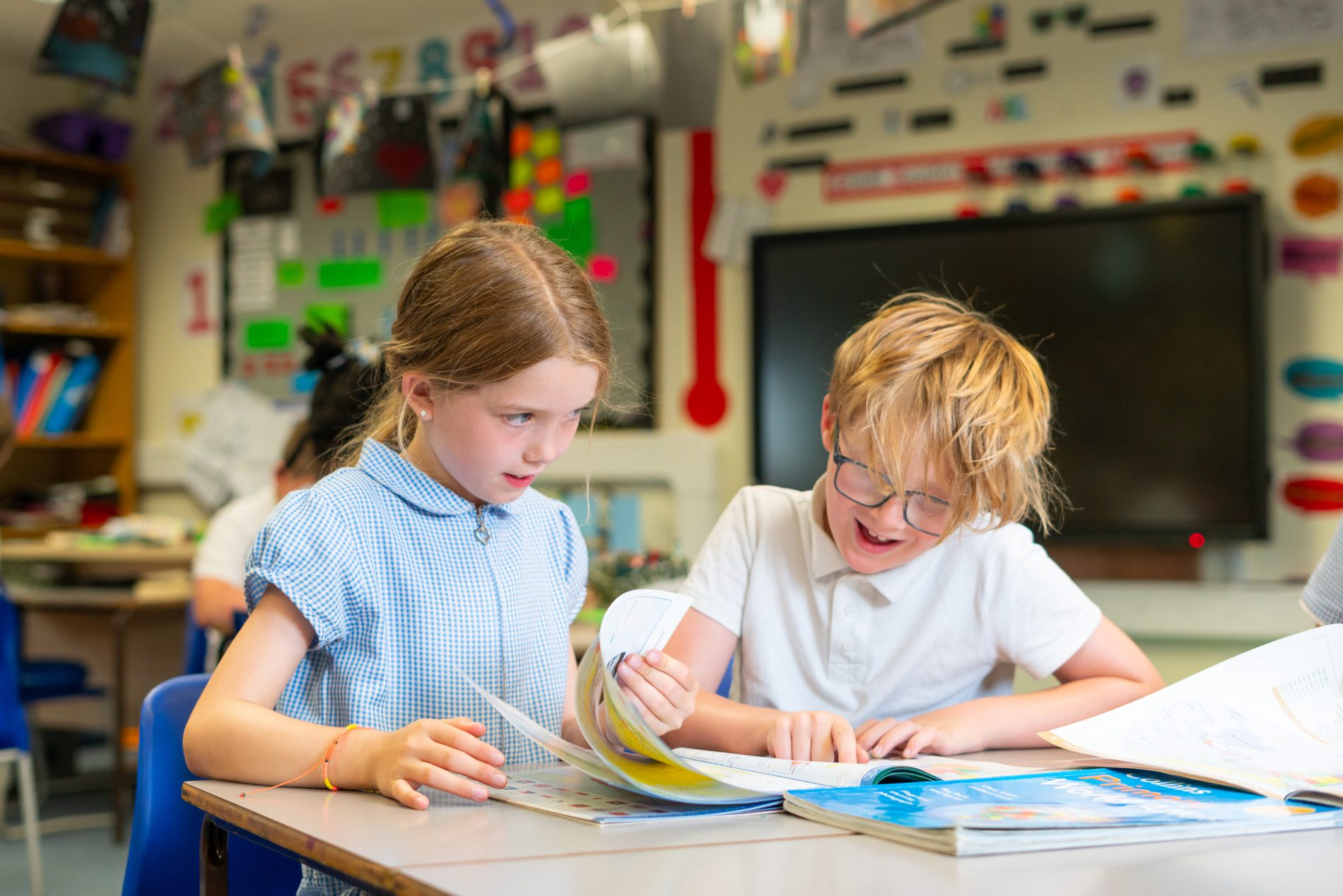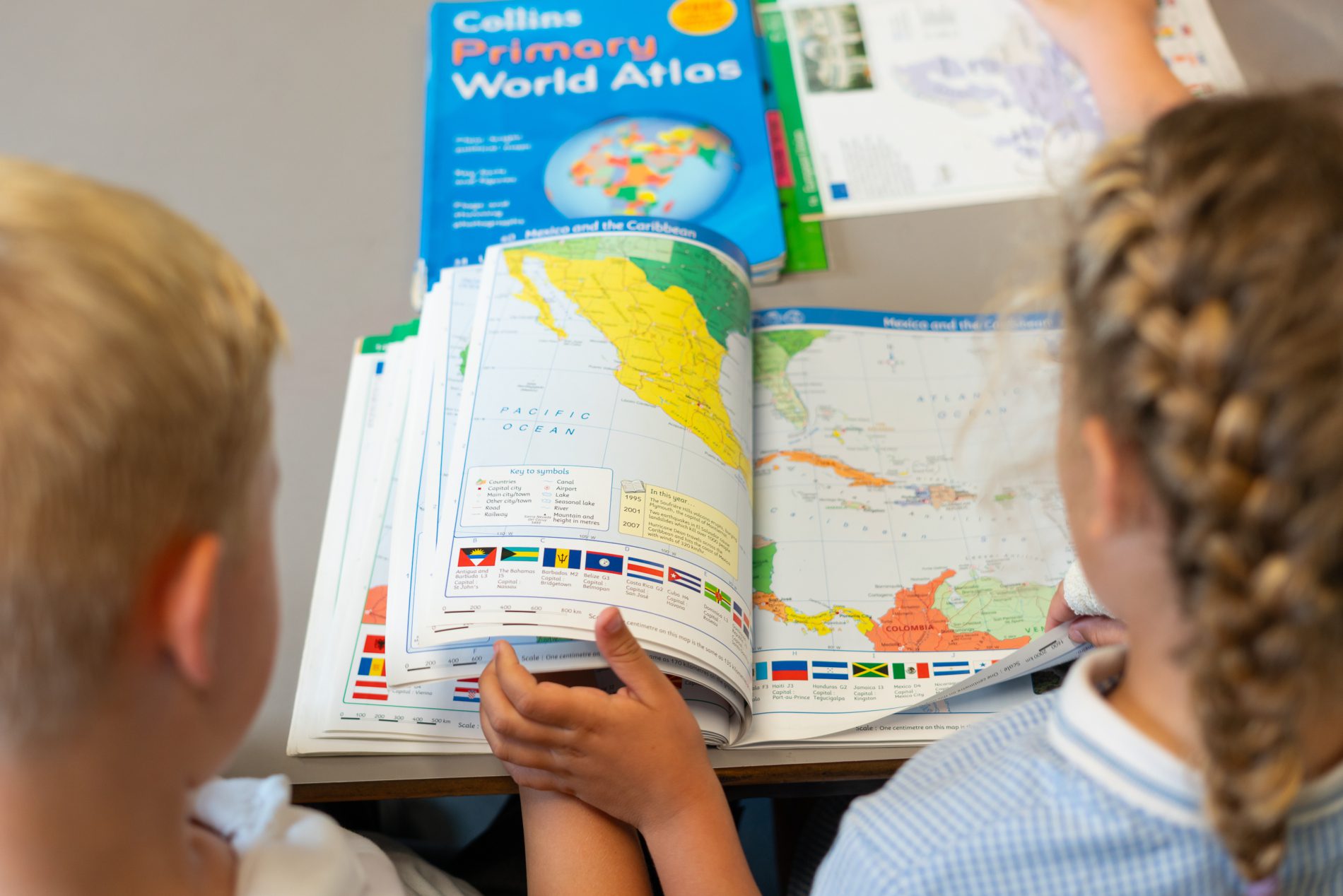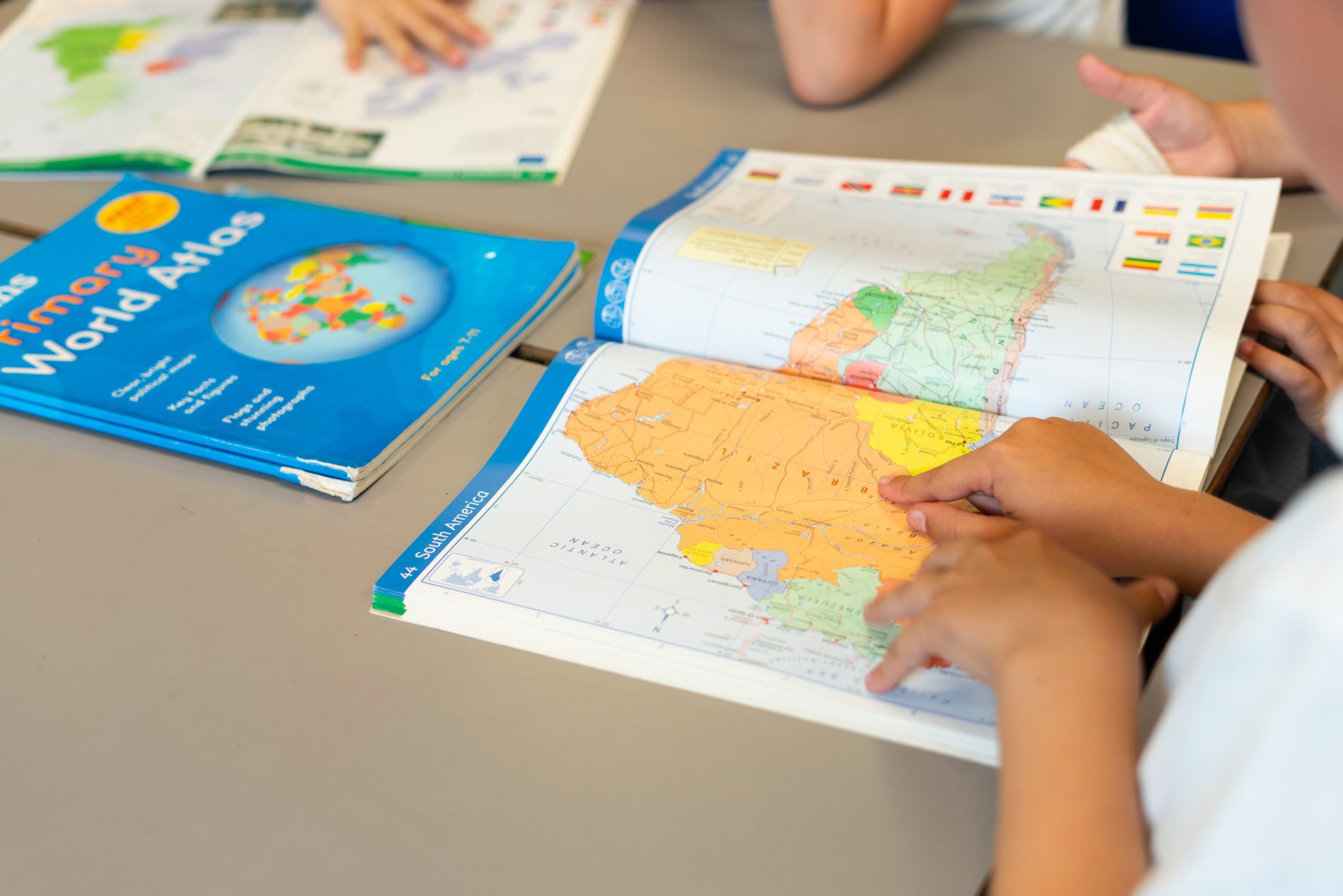Geography Subject Leader: Mrs B Saville
Geography encourages pupils’ awareness of what is around them globally and locally, by enhancing their knowledge of countries, regions, cultures, and environments.
Intent
At Sutton-at-Hone, we believe a high quality geography curriculum should seek to inspire in children a curiosity and fascination about the world and its people. Our aim is to promote the children’s interest and understanding of diverse places, people, resources and natural and human environments, together with a deep understanding of the Earth’s key physical and human processes. As geographers, pupils are exposed to a rich and balanced curriculum that provides them with new vocabulary and knowledge. Children will explore concepts such as diversity, interdependence, sustainability and change and will endeavour to find answers to key enquiry questions. We intend to equip children with the geographical skills to develop their knowledge through studying places, people, and environments.


Implementation
To ensure high standards of teaching and learning in geography, Sutton -at-Hone implements a curriculum that is progressive throughout the whole school. Our curriculum provides a framework which aims to ensure that all pupils:
- develop contextual knowledge of the location of globally significant places
- understand the processes that give rise to key physical and human geographical features of the world
- geographical skills such as gathering and interpreting data through experiences of fieldwork.
- examining and understanding geographical sources including maps, diagrams, globes, aerial photographs and Geographical Information Systems (GIS)
Planning in school is structured systematically using the Chris Quigley Geography Curriculum Companion; this ensures that units are in line with our school approach of a concept-driven curriculum. Although a unit may have a particular focus, the learning progress is based on the geographical concepts: location, physical features, human features, diversity, physical processes, human processes and map techniques. We recognise that these will strengthen the schema as the basis of all geographical knowledge.
Impact
As children move through school, their knowledge will develop progressively, and they will be constantly making links to prior learning. Learning is continuously assessed throughout lessons and misconceptions are explained. Outcomes in geography books show a range of geographical objectives being taught and children are often encouraged to reflect on what they have learnt. Children are confident geographers, and able to use a wide range of geographical vocabulary to talk about the world around them and their understanding of physical and human features. They have a good understanding of their place in the world and beyond, and the lasting effects humans have on the natural world.

Geography in Each Stage
Throughout Key Stage One, Pupils will learn about:
- Investigate the world’s continents and oceans.
- Investigate the countries and capitals of the United Kingdom.
- Compare and contrast a small area of the United Kingdom with that of a non-European country.
- Explore weather and climate in the United Kingdom and around the world.
- Use basic geographical vocabulary to refer to and describe key physical and human features of locations.
- Use world maps, atlases and globes.
- Use simple compass directions.
- Use aerial photographs.
- Use fieldwork and observational skills.
Throughout Key Stage Two, pupils will learn about:
- Locate the world’s countries, with a focus on Europe and countries of particular interest to pupils.
- Locate the world’s countries, with focus on North and South America and countries of particular interest to pupils.
- Identify key geographical features of the countries of the United Kingdom, and show an understanding of how some of these aspects have changed over time.
- Locate the geographic zones of the world.
- Understand the significance of the geographic zones of the world.
- Understand geographical similarities and differences through the study of human and physical geography of a region or area of the United Kingdom (different from that taught at Key Stage 1).
- Understand geographical similarities and differences through the study of human and physical geography of a region or area in a European country.
- Understand geographical similarities and differences through the study of the human and physical geography of a region or area within North or South America.
- Describe and understand key aspects of:
- physical geography, including: climate zones, biomes and vegetation belts, rivers, mountains, volcanoes and earthquakes and the water cycle, human geography, including: settlements, land use, economic activity including trade links and the distribution of natural resources including energy, food, minerals and water supplies.
- Use maps, atlases, globes and digital/computer mapping to locate countries and describe features studied.
- Use the eight points of a compass, four-figure grid references, symbols and keys (including the use of Ordnance Survey maps) to build knowledge of the United Kingdom and the world.
- Use a wide range of geographical sources in order to investigate places and patterns.
- Use fieldwork to observe, measure and record the human and physical features in the local area using a range of methods, including sketch maps, plans and graphs and digital technologies.
Geography Progression
SEND Information
Consideration will be given to how learners will be aided to support the school’s commitment to inclusion. Geography lessons will be accessible to all, with teachers adapting and differentiating the expectations and activities based on the needs of the children in their classes.
Geography Extra Resources
You can support your child at home by helping them to explore our planet by learning about the physical and human features. You can teach your child how to look after our environment and be responsible for the future of our planet, for example by recycling and not wasting our resources. There are lots of ideas and activities on the following websites:
Further Geography Help

